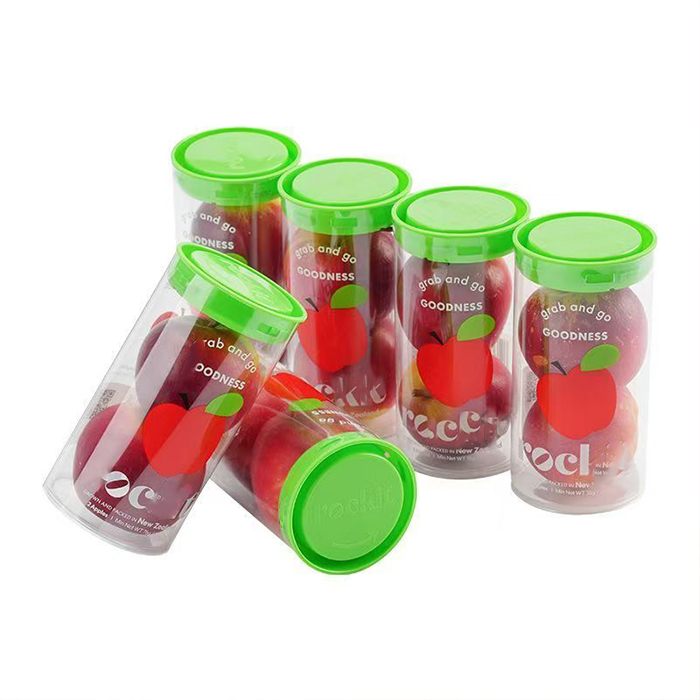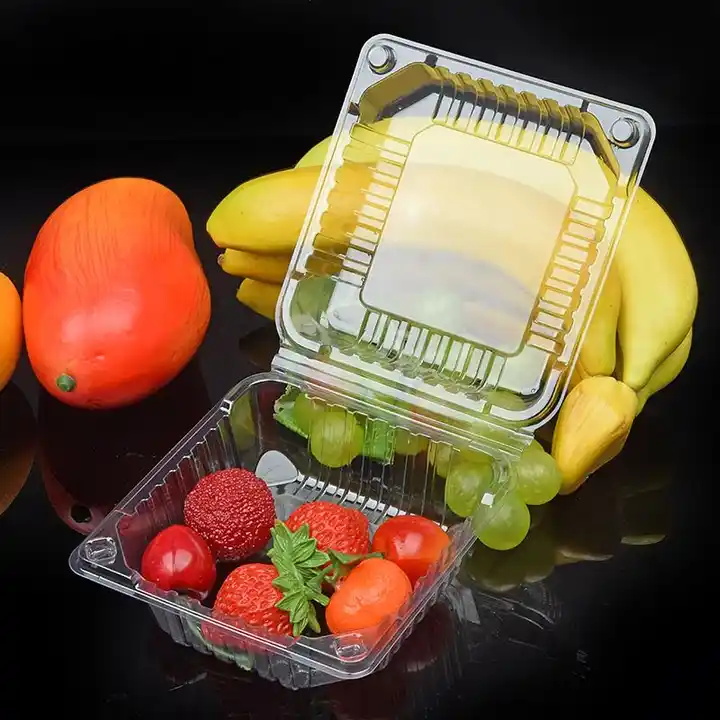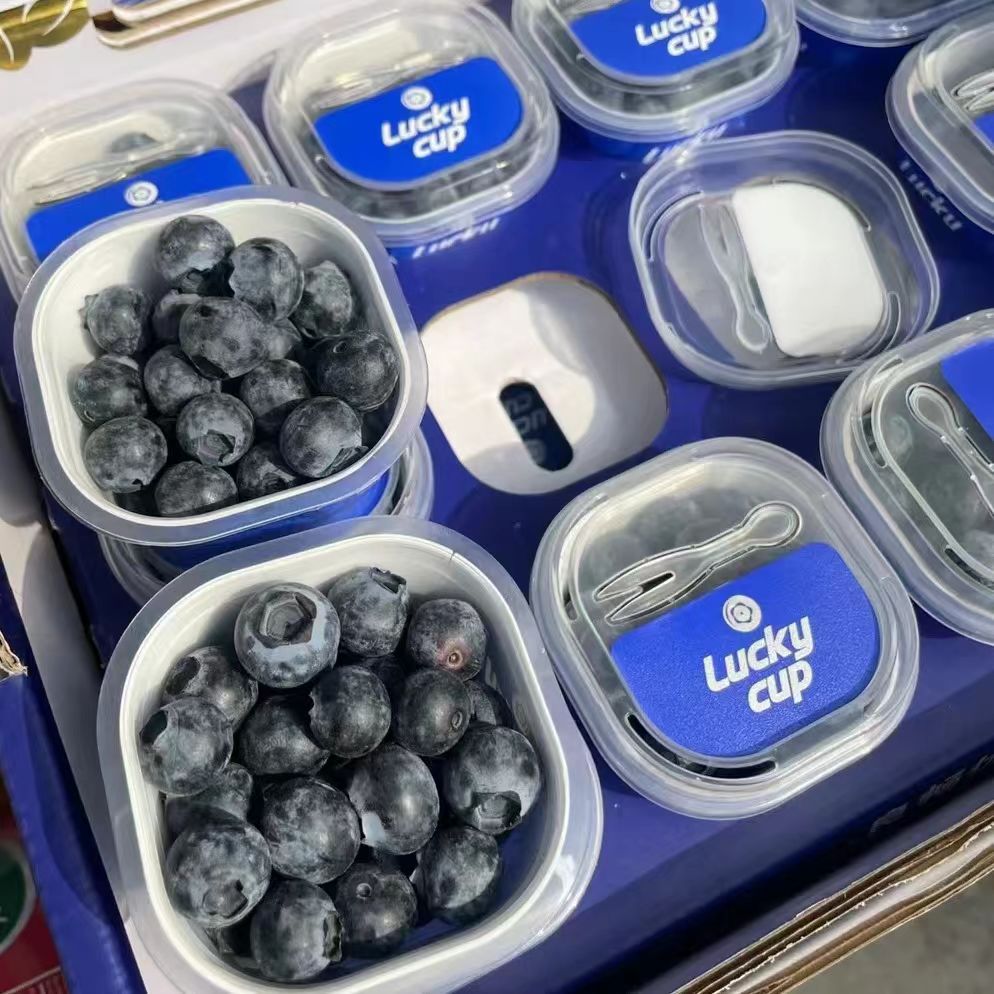Fruit packaging does far more than just contain produce—it protects freshness, prevents mechanical damage, ensures hygiene during transport, and enhances shelf appeal.
From delicate berries to sturdy citrus fruits, each type of fruit requires different levels of protection, ventilation, and moisture control. Choosing the right packaging solution can help maintain quality, reduce waste, and elevate your brand’s presentation.
In this guide, we’ll explore how to choose the ideal packaging for different fruits, focusing on YITO’s biodegradable fruit packaging bags and other popular packaging types, including fruit nets, tubes, boxes, and cups. Whether you are a grower, distributor, or retailer, this guide will help you make a smart, sustainable choice.
Modern Fruit Packaging
Modern fruit packaging is designed not only for function but also for sustainability.
Traditional plastic bags are gradually being replaced by biodegradable and recyclable materials such as PLA (polylactic acid) and paper-based composites.
These innovations aim to balance protection, transparency, ventilation, and eco-friendliness—ensuring that fruits stay fresh and appealing from the farm to the table.
The functions of modern fruit packaging include:
-
Protection: Preventing bruising, crushing, and contamination.
-
Ventilation: Allowing controlled airflow to prevent moisture buildup.
-
Preservation: Maintaining optimal humidity and temperature conditions.
-
Display & Branding: Improving visual appeal and promoting brand awareness.
Common Types of Fruit Packaging and Their Applications
Biodegradable Fruit Packaging Bags — YITO’s Featured Solution
YITO’s biodegradable fruit packaging bags are made from PLA, a plant-based polymer that decomposes naturally under composting conditions.
These bags are highly transparent, waterproof, oil-resistant, and breathable thanks to micro-perforation technology.
Design features:
-
Reclosable zipper top for easy sealing.
-
Side gussets and bottom gusset for larger capacity.
-
Optional hanger hole for display and custom printing for branding.
-
Vent holes to maintain freshness and prevent condensation.

Ideal for: Grapes, blueberries, apples, cherries, mangoes, and more.
Advantages: Eco-friendly, visually appealing, printable, recyclable, and available in both wholesale and custom designs.
YITO offers low MOQ orders and free samples, making it easy for businesses of all sizes to go green.

Fruit Net Bags — Breathable and Lightweight Protection
Fruit net bags are commonly used for citrus fruits, apples, and onions.
Made from PP, PE, or biodegradable PLA mesh, these bags provide excellent ventilation and allow customers to easily inspect fruit quality.
Pros: Lightweight, breathable, affordable, and ideal for short-term retail display.
Cons: Limited moisture barrier; less effective for long-term cold storage.
Fruit Tubes (Rocket Tubes) — Premium Look for Small Fruits
Fruit tubes, cyylinderal containers—often called “rocket tubes”—are cylindrical containers used for blueberries, cherries, and strawberries.
They offer a premium retail appearance while keeping fruits protected during handling and stacking.
Material options: Recyclable PET or biodegradable PLA.
Advantages: Rigid, crush-resistant, and excellent for branding with printed labels.
Limitations: Bulkier than bags, resulting in higher transport costs.

Fruit Boxes — Sturdy Protection and Visual Display
Fruit boxes,or fruit punnets, are designed for larger fruits such as apples, kiwis, or mangoes.
They can be made from PET, pulp fiber, corrugated paper, or PLA sheets, and often include transparent lids for visibility.
Benefits:
-
Stackable and suitable for shipping and storage.
-
High rigidity and impact resistance.
-
Customizable shapes and sizes for different fruit types.
-
Branding potential through logo printing and labeling.

Fruit Cups — Convenient and Ready-to-Eat Packaging
Fruit cups are perfect for cut or portioned fruits—widely used in supermarkets, salad bars, and takeaway stores.
Typically made from transparent PLA or PET, they provide excellent clarity and freshness retention.
Best for: Watermelon cubes, pineapple chunks, mixed fruit salads.
Advantages: Portable, hygienic, tamper-proof, and customizable with lids and labels.

How to Choose the Right Packaging for Different Fruits
Selecting the right packaging starts with understanding your fruit’s nature.
Berries such as blueberries and strawberries are soft and highly perishable, so they need breathable packaging that controls moisture—PLA bags with micro-ventilation or clear tubes work perfectly.
Citrus fruits, with their thicker skins, require airflow rather than tight sealing. Here, mesh net bags or perforated biodegradable pouches are best to prevent mold.
For tropical fruits like mangoes and pineapples, durability and moisture resistance are key—PLA bags or paper boxes can protect them during long-distance transport.
Fruits with smooth skins, such as apples and pears, benefit from structured packaging like boxes or gusseted bags, which protect the skin and extend shelf life.
Finally, cut or portioned fruits call for sealed PLA cups or boxes, ensuring hygiene, freshness, and transparency that appeals to consumers.
When choosing, also consider the storage environment and distance of transport.
Short-term retail display favors lightweight breathable options, while export or cold-chain logistics demand stronger, moisture-resistant packaging.
For eco-conscious markets, biodegradable materials like PLA add both environmental value and brand credibility.
Why Choose YITO as Your Fruit Packaging Partner
YITO is a leading manufacturer of biodegradable and eco-friendly fruit packaging.
We offer a complete range—biodegradable fruit bags, mesh nets, rocket tubes, boxes, and cups—to fit every fruit type and distribution channel.
Why businesses trust YITO:
-
One-stop fruit packaging solutions with custom printing and design flexibility.
-
Low MOQ and free samples for quick testing.
-
Certified biodegradable materials for export compliance.
-
Fast global delivery and professional customer support.
YITO helps growers, retailers, and distributors shift toward sustainable, high-performance packaging that protects both fruit and the planet.
Related Products
Post time: Nov-06-2025

